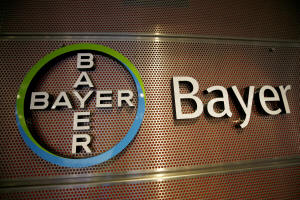|
Bloomberg and other media outlets on Thursday reported the
verdict before the King County Superior Court in the U.S. state
of Washington in favour of 13 plaintiffs who blame their
illnesses on exposure to polychlorinated biphenyls, or PCBs, at
the Sky Valley School in Monroe County.
"We respectfully disagree with the divided jury verdict reached
in this 13-plaintiff case and plan to pursue post-trial motions
and appeals based on multiple errors and the lack of proof at
trial," Germany's Bayer said in a statement.
"The undisputed evidence in this case does not support the
conclusions that plaintiffs were exposed to unsafe levels of
PCBs at the Sky Valley Education Center or that these exposures
are responsible for their alleged health issues" it added.
Bayer shares were down 0.9% at 0738 GMT while Germany's blue
chip index DAX was up 0.7%.
While Monsanto's weedkiller Roundup has been a far larger
litigation burden for Bayer, the diversified healthcare and
agriculture company has also been trying to resolve lawsuits
related to PCBs. The chemical was used in commercial products
until Monsanto voluntarily ended production in 1977.
Bayer has since 2020 resolved a majority of cases in litigation
with municipalities over waste water contaminated with PCB for
$650 million but several other claims remained pending.
In August, it set aside 694 million euros for an expected
settlement with the State of Oregon over PCB in waste water.
The group of substances was once used in electrical equipment,
carbonless copy paper, caulking, floor finish and paint. It was
outlawed by the U.S. government in 1979 after being linked to
cancer.
(Reporting by Ludwig Burger; Editing by Raju Gopalakrishnan)
[© 2022 Thomson Reuters. All rights
reserved.]
This material may not be published,
broadcast, rewritten or redistributed.
Thompson Reuters is solely responsible for this content.

|
|





